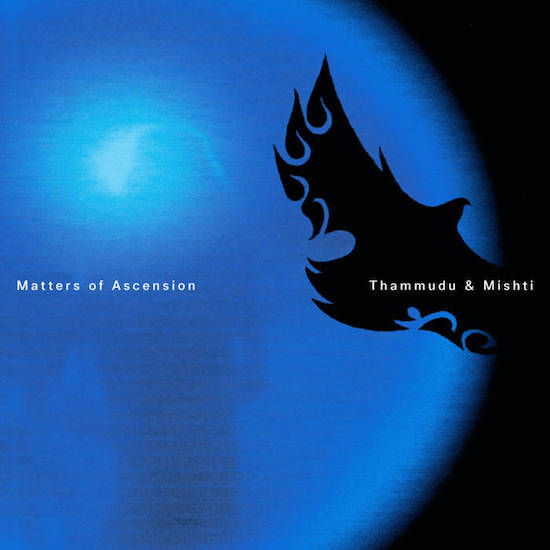The collaborative EP Matter of Ascension by Thammudu & Mishti meets us at the cusp of two major impulses currently driving future-club music: namely the self-conscious development of a social and community-basis for dance music, sat alongside more concept-driven, soundscape-oriented work.
The opening track ‘New Moon’ initiates an icy-cold materiality, cut through with Telugu horror film samples and unnerving oddities, segueing straight into the pulsating and danceable ‘Body Negativity’. This mixed style of cinematic soundscape, sound-design and sampling is layered to create a bass-heavy density that submerges sounds in surges of ephemerality.
‘The Fiery Wheel’ is underlaid with anti-colonial poetry forming a poetic refusal of voice and identity, akin to a hauntological approach. Similarly ‘From Earth to Heaven’ is said to be inspired by Karl Marx to highlight a proto-textuality, where concepts are being pre-figured and affected by the sonic and social composition.
Thammudu, in an Instagram post, cites a variety of thinkers and ideas, “from marx, chetan bhatt, sri sri, nelly furtado, ciccone youth, un-named black metal projects, david lynch, etc”, while also positing an approach that takes us through and beyond the affectivity of religion and spirituality.
Following in line with other releases by TT (Fka Tobago Tracks) from Symrun, Organ Tapes, 8ulentina and others, Matters of Ascension is really challenging the aesthetics of dancefloor diversity within and against tropes of identity. The framing through religious culture – particularly in the context of South Asia – raises the issues of liberation, rituality, and violence as co-produced phenomena pertinent to diasporic cultural production. Or put differently, there’s perhaps a deconstructive approach being taken by Thammudu & Mishti that lies in a deep attentiveness to self and collective social ecologies that electronic music is bounded within.
In that sense, composition and production as embodied practices refuse an individualised self, averting the fetishistic gaze of racialised music, while also avoiding affirmations of diaspora brownness. Instead the aesthetic rub finds itself in a move to abstraction that nonetheless runs itself along the line between embodiment and dis-embodiment that the dancefloor demands. Thammudu & Mishti meet us someplace where a collaborative tumult is blended into disintegrative codes and liberatory rhythms.


